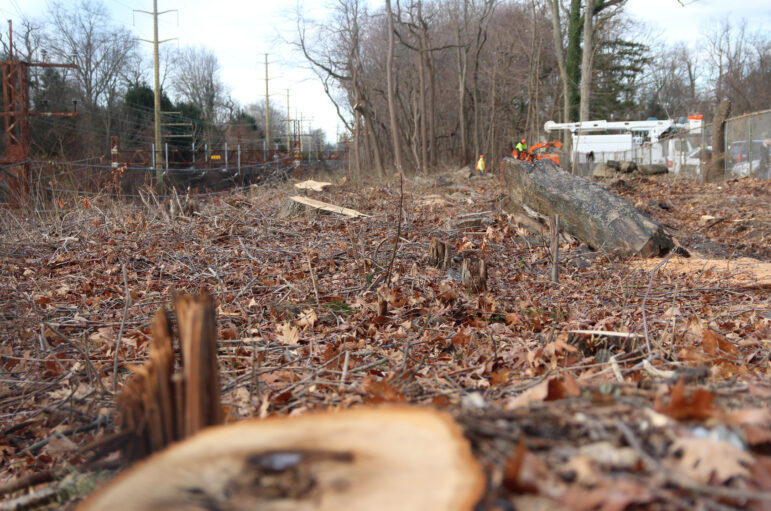Submitted by Juliet Cain, Darien
As Eversource continues to decimate trees along transportation corridors and residential areas alike with its transmission line “vegetation management” and its “resiliency” projects, proposed legislation that could have mitigated indiscriminate tree removals by utilities failed to pass in the Connecticut General Assembly.

The only means we currently have for addressing these issues is via the Vegetation Management Working Group recently established by the Public Utilities Regulatory Authority (PURA).
It’s now ten years since a similar group, the State Vegetation Management Task Force (SVMTF), was convened by the Department of Energy and Environmental Protection (DEEP). In addition to representatives from Eversource and United Illuminating, the SVMTF boasted a diverse membership including experts from local forestry groups, tree conservancies and the Audubon Center as well as urban foresters. The SVMTF meetings were open to the public and two public listening sessions were held, with comments from those sessions being used to guide the final recommendations of the SVMTF.
By contrast, and at a time when tree loss is rampant across our state, the new Working Group has no such diversity. Its initial members comprise Eversource, UI, Frontier Communications Corporation, the Bureau of Energy and Technology Policy and the Eversource Energy Center at the University of Connecticut. The words “fox” and “hen house” come to mind.
Presumably for some balance, the Office of Consumer Counsel, the Connecticut Council of Small Towns, the Connecticut Conference of Municipalities, the Tree Warden’s Association of Connecticut and the DEEP Division of Forestry are also included in the Working Group. Additionally, the Working Group meetings will be open to the public, but only to observe, and there will be no transcript of the meetings.
The proposed charter of the Working Group states that “The general public will have the opportunity to make suggestions or provide feedback in the docket, as well as comment on any draft or final documents as determined by PURA.”
To those who may not know, the PURA docket is an inscrutable system understood by a rare few. It is virtually impossible for a layperson to figure out how to file a comment, let alone to determine the outcome if a filing is ultimately made and, as the sole method of public input, will only serve to increase frustration with utilities and their regulator.
A Working Group of largely self-interested members, devoid of public input, seems unlikely to be able or willing to solve the concerns of ratepayers/voters affected daily by the devastating loss of the health and environmental benefits (not to mention aesthetics and property values) afforded by the thousands of trees being removed.
The minutes of the initial meetings of the Working Group prove the point. Despite a PURA order finding that UI’s “targeted risk management” program did not comport with the current statute, the Working Group determined that interpretation and guidance will be lodged in a dense PURA docket instead of easily accessible laws and regulations. Additionally, notwithstanding the myriad negative effects of utility “vegetation management,” the Working Group’s focus was on stump grinding.
There are many experts from Tree Conservancies and similar organizations who would readily give their time to serve on the Working Group and the PURA facilitator should make changes to the group’s composition. Additionally, members of the public should be invited to attend and contribute comments at Working Group meetings. In the absence of any protective legislation from Hartford this year, Connecticut residents should be permitted some meaningful representation onhis Working Group.